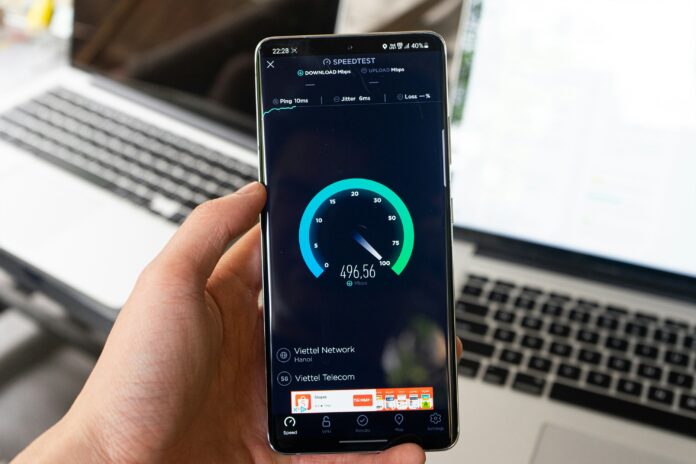The introduction of 5G technology is expected to completely change how we work, live, and engage with the outside world. With its promises of quicker speeds, reduced latency, and more dependable connections, 5G is set to revolutionize a number of sectors and improve consumers’ daily lives. We’ll look at 5G’s future and what it means for businesses and consumers in this post.
What is 5G?
The fifth generation of mobile network technology is referred to as 5G. It comes after earlier iterations like 4G LTE, which for the last ten years has been the norm for mobile connectivity. With speeds up to 100 times faster than 4G, lower latency (the amount of time it takes for data to travel between two points), and the capacity to connect a large number of devices at once, 5G is intended to dramatically increase network performance and ability.
Enhanced Connectivity for Consumers
1. Faster Download and Upload Speeds
Faster upload and download speeds are among the first advantages 5G users will notice. It will be more efficient and fluid to stream HD videos, download big files, and play online games. For instance, a full-length HD movie that could take several minutes to download over a 4G network can be done in a matter of seconds with 5G.
2. Improved Streaming and Gaming Experiences
5G’s greater bandwidth and reduced latency will make streaming and gaming much more enjoyable. There will be less buffering when streaming media in higher resolutions on platforms like Twitch, YouTube, and Netflix. Less lag and more responsive gameplay will be enjoyed by players, increasing the viability of cloud gaming services like Microsoft xCloud and Google Stadia as well as mobile gaming.
3. Enhanced Augmented Reality (AR) and Virtual Reality (VR) Applications
The development and uptake of AR and VR technologies will also be accelerated by 5G. Virtual reality (VR) games, AR navigation, and virtual tours will all become more responsive and immersive applications. This will create new opportunities for remote collaboration, education, and entertainment.
4. Smart Homes and IoT Devices
With the arrival of 5G, the Internet of Things (IoT) will flourish. Faster and more dependable connections will be advantageous for smart home appliances, security cameras, and thermostats. Everyday chores will be more convenient as a result of consumers’ increased ease and efficiency in managing and monitoring their homes.
Transformative Impact on Businesses
1. Enhanced Operational Efficiency
5G has the potential to increase productivity and simplify operations for businesses. For example, manufacturers can set up “smart factories,” which are networks of connected machinery and equipment that can communicate with one another in real time. This may result in more productive overall, downtime being minimized, and production processes being optimized.
2. Remote Work and Collaboration
The use of remote work has grown in popularity since the COVID-19 pandemic, and 5G will only accelerate this trend. Workers can work remotely without sacrificing output thanks to quicker and more dependable internet connections. File sharing, video conferencing, and other collaborative tools will all function flawlessly, allowing teams to work together efficiently no matter where they are in the world.
3. Healthcare Innovations
The use of 5G technology has enormous potential benefits for the healthcare sector. Faster and more dependable connectivity will improve a number of applications, including robotic surgery, remote monitoring, and telemedicine. More accurate remote diagnosis and treatment by doctors is anticipated, and real-time data from medical devices to healthcare providers will enhance patient outcomes.
4. Autonomous Vehicles and Smart Cities
The advancement of autonomous vehicles and smart city infrastructure will be greatly aided by 5G. 5G networks can enable the quick exchange of data between cars and infrastructure, resulting in safer and more effective autonomous driving thanks to their low latency and high reliability. 5G can be used by smart cities to control traffic, keep an eye on the environment, and enhance public safety through networked sensors and gadgets.
5. Retail and Consumer Engagement
The deployment of 5G will bring about significant changes for the retail industry as well. Improved augmented reality and virtual reality apps can offer customers virtual try-ons for clothing and interior design visualizations for furniture. 5G enables retailers to collect real-time consumer preference and behavior data, allowing for more individualized marketing and better customer support.
Challenges and Considerations
1. Infrastructure Development
Deploying 5G widely will require significant infrastructure investment. It will take a lot of time and money to build the required network of small cells, antennas, and fiber optics. For 5G networks to be successfully deployed, governments and private businesses will need to work together.
2. Security and Privacy Concerns
Security and privacy become crucial concerns as the number of connected devices rises and the volume of data transferred over 5G networks increases. To avoid breaches and guarantee privacy, companies and customers need to be diligent about safeguarding their data and putting strong cybersecurity measures in place.
3. Cost and Accessibility
Despite the many advantages that 5G promises, there are worries regarding the cost of implementing this new technology. It can be costly to upgrade to 5G-compatible infrastructure and devices, which could lead to a digital divide in which only some businesses or demographic groups are able to fully utilize 5G’s advantages.
The Road Ahead
With the potential to revolutionize both consumer experiences and business operations, 5G has a bright future. Technology will have an impact on many different industries and facets of daily life as it develops and becomes more widely used. Customers and businesses can better prepare for the changes that 5G will bring and take advantage of the opportunities it presents by being aware of the advantages and difficulties it brings.
In summary, 5G is expected to bring in a new era of connectivity and spur growth and innovation in ways that were not possible in the past. The potential for 5G to change business and live is enormous, ranging from better customer experiences to game-changing applications.

